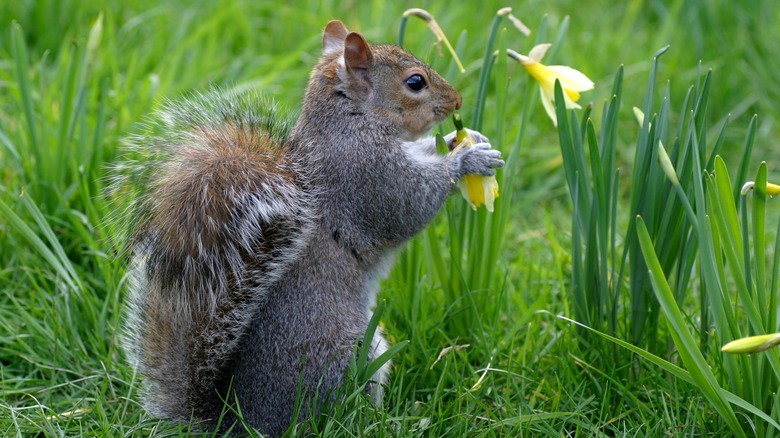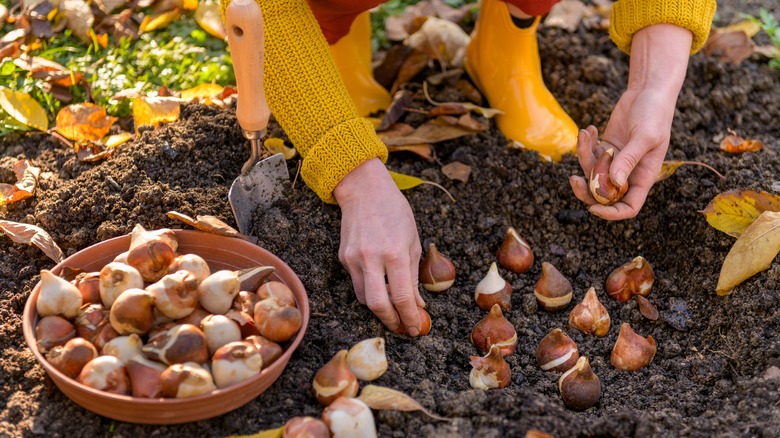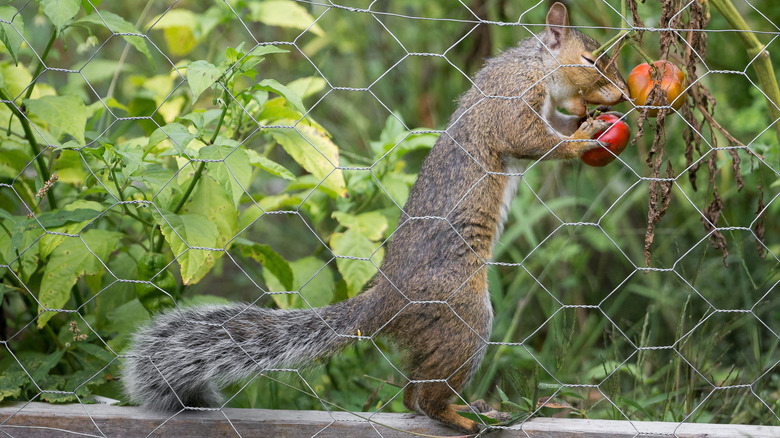Why Do People Plant Daffodils To Keep Squirrels Out Of The Garden & Does It Work?
There are few things more disappointing than having a beautiful garden completely destroyed by hungry and curious squirrels. While there are a variety of suggested strategies for keeping these cute critters out of your garden, one popular method is to plant poisonous bulbs like daffodils around the perimeter. While it is true that squirrels don't eat daffodil bulbs, there is little evidence that daffodils keep squirrels from disturbing other nearby bulbs or plants. That doesn't mean you have to surrender to squirrels though, as there are plenty of other strategies for keeping them out of your garden.
While there is little evidence that planting a fence of daffodils will protect other plants, they're still a great option for spring flower lovers who have had problems with squirrels. Daffodils and their bulbs are mildly poisonous, so squirrels are unlikely to eat them. But that doesn't mean curious squirrels and other rodents won't still try digging up a few of the bulbs. Other bulbs that are unlikely to be seriously harmed by squirrels include hyacinths, alliums, muscaris, and fritillarias. Tulips and crocuses, on the other hand, are notorious for appealing to these rodents.
Proper planting is the best way to protect bulbs
Bulbs are most vulnerable to being pilfered by squirrels right after they've been planted, when the ground is noticeably disturbed. Luckily, there are ways to keep squirrels from digging up your fall bulbs. Most importantly, make sure you properly bury them and cover the area with mulch so these pests aren't tempted to investigate. Additionally, bury your bulbs to their recommended depth, as this will make them less accessible to hungry rodents. This is generally 6 to 8 inches deep for tulips, hyacinths, and daffodils and 3 to 4 inches for crocuses, muscaris, and other smaller bulbs.
While some people bury bone meal with the bulbs to provide them with phosphorus, this is rarely necessary, and the smell of the fine powder can attract squirrels and other wildlife. Before adding anything, buy or make tests to check the health of your soil. If you're still concerned about your bulbs' safety, place chicken wire over the planted area to keep squirrels from digging.
Squirrels in the summer garden
It's hard to blame squirrels too much for their tendency to dig up tulip and crocus bulbs in the fall and winter. After all, it can be challenging for these animals to find their preferred foods like nuts, seeds, and berries during these months. It is far less forgivable when squirrels tear up beautifully planted summer annuals. In this case, the squirrels may not be looking for something to eat, but simply trying to find a good spot to hide a stash of nuts or seeds. Stapling hardware cloth around young plants can make it more difficult for squirrels to dig them up. Squirrels will also sometimes eat berries, tomatoes, and other delicious produce off of your plants. In this case, the UC Master Gardener Program of Contra Costa County recommends caging in the entire berry or tomato plant, as it notes that many chemical deterrents are not terribly effective.
If your plants are primarily damaged at night, it's possible the true culprits are actually deer or rabbits. Setting up a trail camera is a fun and practical way to discover what animals are damaging your garden and where they're coming from. Armed with that knowledge, you'll be able to know whether it's deer you need to keep out of your yard, or rodents.


